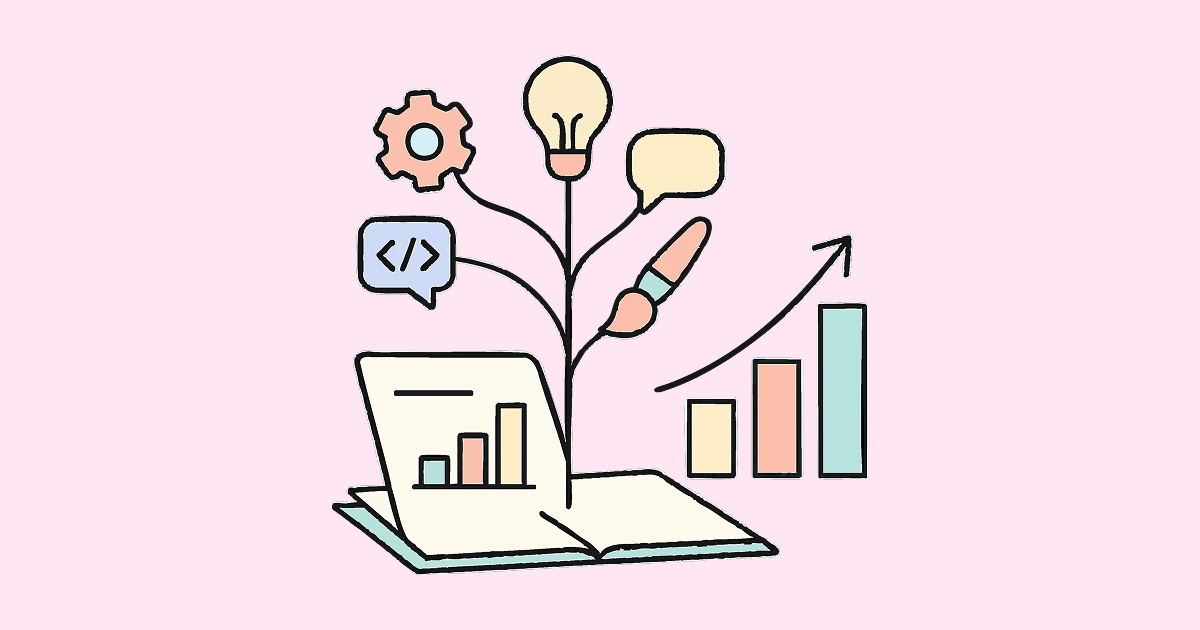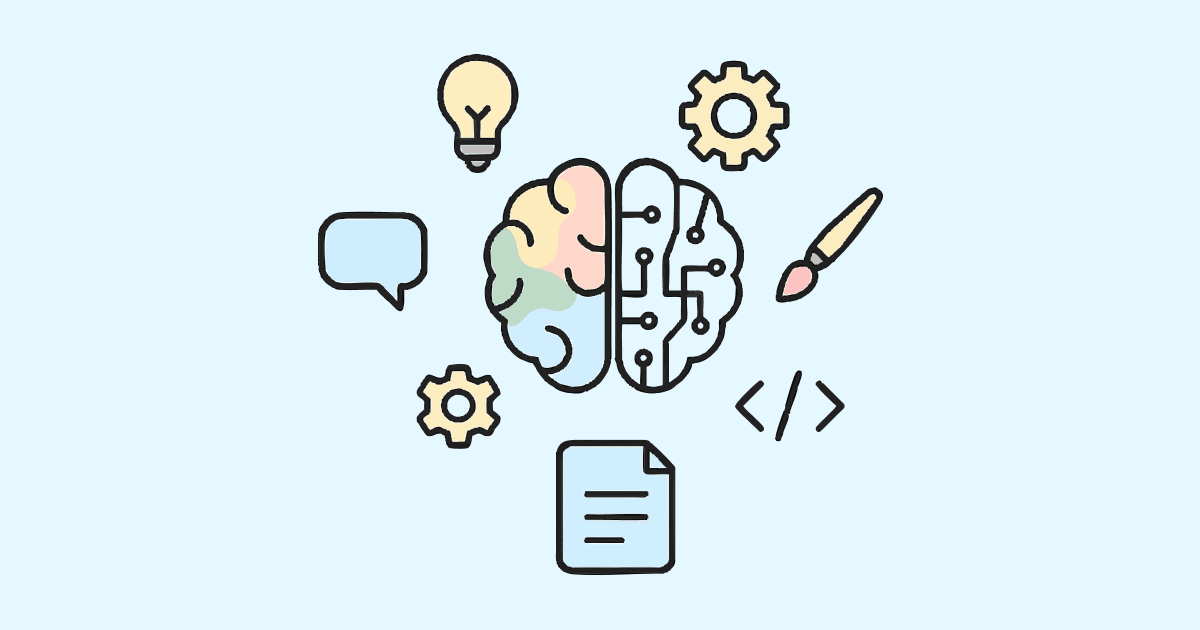Skills-based learning: From buzzword to business impact

Skills-based learning is the talk of the L&D town. But is it just another HR buzzword, or is it truly reshaping how organisations grow, adapt, and compete? In today’s workplace, defined by accelerating change from AI to hybrid work, traditional job roles are no longer enough. What’s needed is a skills-first approach: one that prioritises capabilities over titles and equips people to pivot, innovate, and thrive in uncertainty.
This article explores how skills-based HR and skills-based transformation are helping organisations unlock employee potential and build a future-ready workforce. You’ll learn why skills are becoming the new currency of competitiveness, and how to design strategies that go beyond buzzwords to measurable business impact.
We’ll take a closer look at:
- What skills based learning is
- The skills based transformation
- 5 steps to implement skills based learning in your organisation
- The 3 main hurdles to take while implementing a skills-first approach (and how to overcome them!)
Why skills based learning is the future of work
Traditional job titles are losing their value. It’s as simple as that. Roles that were clearly defined yesterday may look entirely different tomorrow, making static positions less relevant. Instead, skills are becoming the true currency.
Skills are the measure of value an employee brings to an organisation and the key to staying competitive. A skills-first approach allows organisations to deploy talent where it’s most needed, adapt to shifting priorities and unlock innovation. Employees equipped with the right capabilities can navigate complex challenges, collaborate across functions and drive results beyond the limits of a fixed job description.
By treating skills as currency, companies create a future-ready workforce that can thrive in uncertainty. Skills-based learning ensures not only that employees continuously grow their capabilities. It also enables organisations to remain agile, resilient and positioned for long-term success.
What is skills based learning (and what not)?
Skills-based learning is an approach that prioritises the development and application of specific capabilities over rigid job titles or traditional training programs. It focuses on equipping employees with the skills they need to solve real-world problems, adapt to change and contribute value across the entire organisation.
Important note here; it’s not just rebranding training. Unlike conventional learning, which often follows a one-size-fits-all curriculum, skills-based learning represents a mindset shift: from compliance-driven courses to continuous, personalised development aligned with organisational goals.
For example, instead of sending all project managers through a generic leadership course, a skills-based approach might identify critical skills like stakeholder management or agile planning for each individual. Employees then receive targeted learning opportunities to strengthen those capabilities, creating measurable impact for both their growth and the organisation.
From buzzword to business impact: the skills based transformation
Now that we understand what skills-based learning truly is, it’s clear why organisations can’t afford to ignore it any longer. Moving from a mindset of generic training to targeted, skills-first development directly translates into measurable business impact. Companies that embrace this shift don’t just equip employees for the future, they gain agility, resilience and alignment between talent and strategy.
David James, CEO of 360Learning and a leading voice in the learning and development landscape, highlights the significance of this approach in our podcast:
“Big thing for me is that skills-based learning is the way that we can address so many of the deficiencies in the learning and development profession and then address what is one of the biggest priorities, not just for our organisations but entire economies. So it's an opportunity that we've just got to take.”
A skills-first approach empowers employees by giving them ownership of their growth, which improves retention, engagement and performance overall. At the same time, it ensures that learning initiatives are tightly linked to strategic goals, enabling HR and L&D teams to demonstrate real ROI. By prioritising skills over roles or courses, organisations create a future-ready workforce capable to respond proactively to emerging challenges.
Whether it’s preparing teams for digital transformation, AI adoption, or rapidly shifting market demands, a skills-first framework ensures that employees have the capabilities needed to deliver impact now and in the future. By systematically mapping, tracking, and developing critical skills, organisations can turn learning into a strategic lever that fuels innovation, strengthens competitive advantage, and sustains long-term growth.
How to implement skills based learning in your organisation
Turning a skills-first approach into actionable business impact requires a clear framework. HR and L&D leaders can follow these overarching 5 steps to implement skills-based learning effectively:
- Assess current skills
Start by evaluating the existing capabilities within your workforce. Identify both strengths and critical gaps to understand where development is needed most. As David James, CEO of 360Learning, notes:
"You don't need to assess your entire organisation in one go. What we're able to do is skills map of priority parts of our organisation rather than thinking that it is always a company-wide initiative because it's generally not."
This targeted approach allows HR and L&D leaders to focus on the areas with the highest impact, making skills-based learning more practical and manageable.
- Map skills gaps
Analyse how current skills align (or misalign) with your organisation’s short- and long-term strategic goals.
As David James explains:
"What you're able to do now is with simple AI tools that are freely available, you can map skills in your organization round to about 90%. You can list likely departments, roles, critical skills to prioritise and even proficiency levels. It’s not 100%, but it’s close—so instead of starting with a blank sheet, you focus on the functional expertise required to deliver on those skills. And that is an enormous step forward."
This approach helps HR and L&D leaders quickly identify gaps and prioritise development efforts, making a skills-based approach tangible and actionable.
- Align learning with strategy:
Ensure that skills development initiatives are directly linked to business objectives. This creates measurable impact and reinforces the value of a skills-based organisation.
- Embed skills (development) into culture
Make continuous learning and skill development part of everyday work. Encourage a growth mindset, provide access to flexible learning opportunities, and recognise employees who actively develop key capabilities.
Important side note to make here, as James points out:
“We can’t rely solely on the goodwill of motivated learners. L&D needs to provide guidance, resources, and support to help employees grow their knowledge, skills, and decision-making capabilities.”
- Track and optimise
Monitor progress, measure outcomes and adapt programs based on feedback and evolving business needs. This ensures that a skills-first approach remains dynamic and relevant.
By following this framework, organisations can shift from theoretical discussions to practical implementation, ensuring that employees not only acquire the right skills but also apply them effectively.
Building a skills based organisation
A true skills-based organisation goes beyond simply training employees. It embeds skills into the very fabric of workforce planning, talent mobility and leadership development. Instead of thinking in terms of static job roles, HR and L&D leaders begin to design work around capabilities. This means asking: what skills do we need to deliver strategy now, and what will we need tomorrow?
When skills become the organising principle, employees gain greater transparency about their opportunities to grow and move within the organisation. Career paths shift from rigid ladders to dynamic lattices, where people can pivot across roles or functions by leveraging transferable skills. This creates an environment where talent mobility thrives, and individuals feel supported in shaping their careers.
David James, Chief Learning Officer at 360Learning, notes:
“When you’ve completed the skills map, it’s the same data but in a different form that creates career paths. We can truly activate the learners by saying to them: this is your path to proficiency, this is your path to mastery — and for them to understand what the plausible routes are inside the organisation. That’s incredibly powerful.”
Leadership development also benefits from a skills-first approach. Rather than selecting leaders solely based on tenure or job history, organisations can identify and nurture emerging leaders based on their demonstrated skills, such as adaptability, critical thinking, or inclusive decision-making. By integrating skills into workforce planning, companies can ensure they are cultivating leaders who are ready for the complexities of the future workplace.
Ultimately, building a skills-based organisation isn’t just a structural shift, it’s a cultural one. It signals to employees that what matters most is not their title, but their ability to grow, contribute and create impact.
An inclusive workplace culture, the key to future-ready organisation.
While the promise of a skills-based transformation is compelling, making it a reality comes with hurdles.
- One of the most common barriers is securing leadership buy-in. Senior leaders often want evidence of ROI before committing resources, yet without investment, impact can’t be measured. The solution lies in linking skills initiatives directly to business outcomes: reduced turnover, faster project delivery, or greater adaptability in the face of change.
- Employee adoption is another challenge. Shifting from role-based learning to a skills-first approach requires employees to see the value for themselves. HR and L&D teams must clearly communicate how skills mapping and development open up new career opportunities, not just add another layer of assessment. Engagement is critical, because when employees understand the personal benefit, adoption follows.
- Finally, measuring skills impact can feel daunting. Unlike training completions, skills growth requires new metrics. Organisations can start small: track progress in priority areas, measure the speed at which employees acquire critical skills, and connect those improvements to performance outcomes. Even incremental measurement helps build momentum and demonstrate value.
The bottom line? Skills-based transformation is a journey, not a one-off initiative. With committed leadership, transparent communication and thoughtful measurement, HR and L&D leaders can overcome resistance and build a truly future-ready workforce that thrives in an unpredictable world. Skills aren’t just a learning metric anymore, they’re the new language of business.
Ready to build a future-ready workforce? Discover how GoodHabitz helps organisations adopt a skills-first approach that turns learning into lasting impact.



